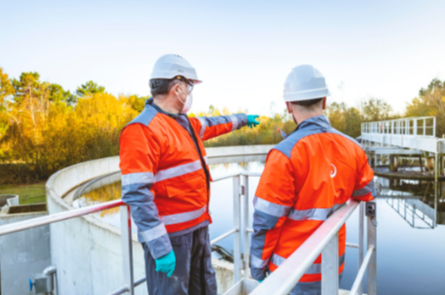Ensuring Water Safety: The Crucial Role of Water Safety Professionals

Water safety professionals act as guardians of aquatic environments, assuming a fundamental part in preventing accidents, answering emergencies, and advancing a culture of safety. Their skill, training, and devotion contribute significantly to protecting lives around water bodies, be it swimming pools, beaches, water parks, or natural waterways.
In this complete investigation, we dive into the multifaceted significance of the water safety profession.
Preventing Drowning Incidents
One of the essential responsibilities of water safety professionals is to prevent drowning episodes. Drowning stays a main source of unexpected injury-related passing around the world, making the presence of prepared professionals central in aquatic settings. Their sharp perception skills, knowledge of water elements, and capacity to survey gambles with assistance in identifying possible perils and going to proactive lengths to relieve them.
Swift Emergency Response
In emergencies, consistently counts, and the swift reaction of water safety professionals can be lifesaving. Their training incorporates first aid, cardiopulmonary revival (CPR), rescue procedures, and the utilization of lifesaving equipment like rescue buoys and backboards. This readiness empowers them to answer expeditiously and actually to water-related emergencies, limiting the gamble of serious injuries or fatalities.
See Also: Your Ultimate Guide to Yacht Rental: Everything You Need to Know
Advancing Public Awareness
Past their functional roles, water safety professionals likewise assume a crucial part in teaching the public about water safety rehearses. Through studios, workshops, community outreach programs, and advanced crusades, they bring issues to light about drowning prevention, safe swimming ways of behaving, the significance of grown-up oversight for kids, and perceiving the indications of misery in swimmers. This proactive methodology enables people with essential knowledge, diminishing the probability of water-related accidents.
Ensuring Consistence with Safety Standards
Maintaining a protected aquatic environment requires severe adherence to safety norms and regulations. Water safety professionals authorize these principles by directing ordinary inspections of swimming pools, beaches, and other sporting water offices. T
hey guarantee that safety conventions are set up, for example, legitimate signage demonstrating water profundity, lifeguard accessibility, and emergency contact data. By upholding these principles, they establish more secure environments for swimmers and beachgoers.
Training and Certification Programs
Lifeguard training programs are instrumental in outfitting people with the skills and knowledge important to become powerful water safety professionals. These programs cover a large number of subjects, including water rescue procedures, surveillance methodologies, first aid, CPR/AED organization, spinal injury management, and communication conventions.
Lifeguard classes near me offer helpful admittance to exhaustive training, getting ready people to deal with different situations and contribute to a more secure aquatic community.
Working together with Emergency Services
Water safety professionals frequently work together intimately with emergency administrations like paramedics, firemen, and law enforcement agencies. This collaboration guarantees seamless coordination during water-related emergencies, for example, swift water rescues, boat accidents, or medical emergencies in aquatic settings. By cooperating, these professionals upgrade their reaction capacities and further develop by and large emergency management.
Supporting Sporting Activities
Sporting water exercises give pleasure, unwinding, and physical fitness advantages to a great many individuals internationally. Water safety professionals assume a vital part in supporting these exercises by ensuring that sporting facilities are protected and charming.
They lead customary safety briefings, screen swimmer conduct, authorize rules and regulations, and give help or intercession when required. This proactive methodology upgrades the general insight for water aficionados while alleviating likely dangers.
Community Engagement and Inclusion
Water safety professionals advocate for inclusivity and availability in aquatic environments, ensuring that everybody, paying little heed to age, capacity, or background, can securely appreciate water-related exercises.
They work together with associations that advance water safety education for underserved communities, offer swimming illustrations for people with handicaps, and implement versatile aquatics programs. By encouraging inclusivity, they set out open doors for everybody to partake in water-based diversion securely.
Professional Authorization and Lifeguard certification
Maintaining elevated expectations of professionalism is a foundation of the water safety profession. Water safety professionals go through thorough training and get certifications, like lifeguard certification, to approve their skills and ability.
These certifications show their capability in essential regions, for example, water rescue, first aid, CPR, and emergency reaction, imparting trust and confidence in their capacity to guarantee water safety.
The Role of the American Lifeguard Association
The American Lifeguard Association (ALA) is a conspicuous association devoted to propelling water safety education and training. Through its lifeguard certification programs, educational assets, and support endeavors, ALA plays a significant role in molding the norms and practices of the water safety profession.
Their commitment to greatness highlights the significance of consistent learning, skill development, and professional authorization inside the aquatic business.
In conclusion, water safety professionals are basic supporters of public safety in aquatic environments. Their proactive methodology, swift reaction in emergencies, commitment to education, and collaboration with stakeholders make them essential guardians of water safety.
By advancing mindfulness, authorizing norms, encouraging inclusivity, and maintaining professional greatness, water safety professionals guarantee that everybody can appreciate water-related exercises securely and capably.






